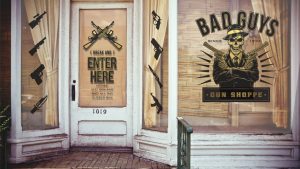Where Criminals Get Their Guns
< < Go Back
A survey released in January by the U.S. Department of Justice revealed some very interesting information about how criminals get their guns. And it doesn’t bode well for those who would curtail our constitutional freedom under the guise of reducing violent crime.
For years, those of us on the pro-freedom side of the heated national debate over private firearm ownership have argued that the plethora of gun laws being forced upon us by gun-ban billionaires, cynical anti-gun politicians and the national media don’t affect criminals at all. After all, that’s why they are called “criminals”—they don’t obey the law.
A good example is so-called “universal” background checks. While politicians from sea to shining sea scramble to pass background check legislation under the false promise that it will reduce crime, a look at where criminals actually get their guns is all that is needed to prove otherwise. Digging into this topic proves what we have been saying for years—“universal” background checks are only universal for law-abiding citizens, and largely ignore violent criminals.
The same is true for most other gun control laws, too. And the recently released study shows why. Researchers conducted face-to-face interviews with a national sample of state and federal prisoners between January and October 2016 as part of the 2016 Survey of Prison Inmates (SPI).
Among prisoners who possessed a firearm when they committed the offense for which they were imprisoned and who reported the source from which they obtained it, the most common source (43 percent) was off the street or the underground market. Another 7 percent of state and 5 percent of federal prisoners stole the firearm, and 7 percent of state and 8 percent of federal prisoners reported that they obtained the firearm at the location of the crime. About a quarter (26 percent) of state prisoners and about a fifth (21 percent) of federal prisoners obtained their firearm from an individual in another non-retail setting, such as a friend or family member.
More From America’s 1st Freedom:




